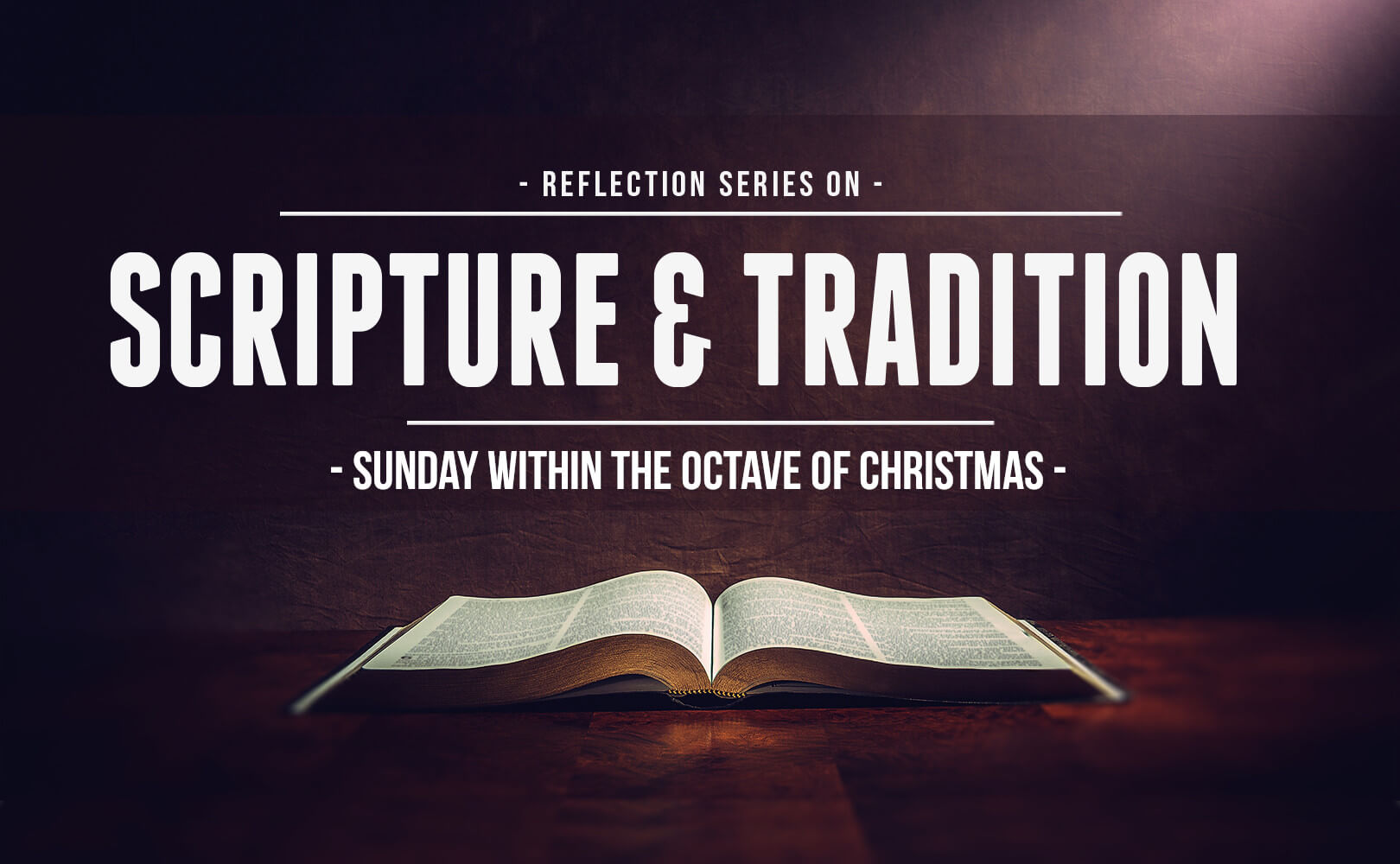Epistle: Galatians 4:1-7
Gospel: Luke 2:33-40
O almighty and everlasting God, direct our actions according to Thy good pleasure; that in the Name of Thy beloved Son we may deserve to abound in good works.
– From the Collect for the Sunday Within the Octave of Christmas
During this Christmas Octave the Church calls us to reflect on the mystery of the Incarnation, the wonderful reality that the eternal God, Who is Spirit, became a flesh-and-blood man, born of a woman.
In Sunday’s Epistle, St. Paul writes to the Galatians that “when the fulness of the time was come, God sent his Son, made of a woman.” The Apostle wants to emphasize that God the Son did not merely appear to be man, he really was made, and came from the womb of a mother, just like any other man. Of course, Jesus was not just “any other man,” but God Incarnate. As St. Leo the Great tells us, “He is God in that ‘all things were made through him and nothing was made without him’ (Jn 1:3). He is man in that he was ‘made from a woman, made under the law’ (Gal 4:4). The nativity of his flesh shows his human nature. The virgin birth is an indicator of his divine nature” (Letter 28 to Flavian 4).
But why did God become man? The Almighty God could have just saved us by an act of His will. And that would have sufficed for our sake, but it would not have sufficed for His boundless love. Further, God does not want only to save us, He wants to elevate us to His divinity. He became man so that, as St. Paul writes, “we might receive the adoption of sons” (Gal 4:5). Sons inherit their father’s possessions, and so, by our adoption as sons of God, we likewise inherit God’s “possessions.” As St. Athanasius famously said (and the Fathers loved to repeat), “He was made man that we might be made God” (On the Incarnation 54:3).
The Catholic teaching on “divinization,” however, rejects a New Age interpretation; i.e., believing we can become gods by nature. Only Jesus Christ is God by nature; we are gods by grace, as St. Augustine explains, “[Paul] says adoption so that we may clearly understand that the Son of God is unique. For we are sons of God through his generosity and the condescension of his mercy, whereas he is Son by nature, sharing the same divinity with the Father” (Epistle to the Galatians 30). St. Thomas Aquinas also clarifies what St. Paul means, “With this in mind, he says, ‘that we might receive the adoption of sons,’ i.e., that through the natural Son of God we might be made adopted sons according to grace through Christ” (Commentary on Galatians 209).
Christmas, then, is the celebration of both God’s condescension to our humanity, as well as our elevation to His divinity. But how does this happen for each person? The Angelic Doctor says, “we cannot become adopted sons unless we are conformed to the natural Son: ‘for whom he foreknew, he also predestined to be made conformable to the image of his Son’ (Rom 8:29)” (Commentary on Galatians 209). So in this Octave of Christmas, as we remember the Son become man, we need to do all we can to conform ourselves to Him so that we might become transformed into His image and likeness by His grace.


